Guest columnist Daniel Lyons: World’s energy systems will not change in the short-term
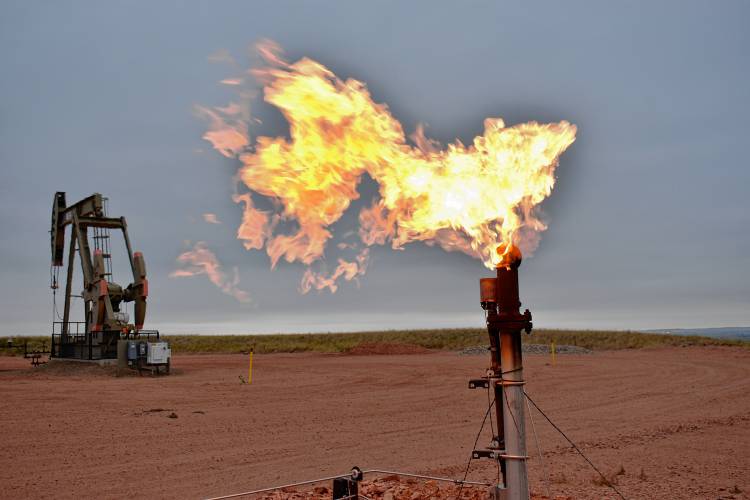
A flare burns natural gas at an oil well on Aug. 26, 2021, in Watford City, N.D. AP FILE PHOTO/MATTHEW BROWN
| Published: 03-29-2024 4:02 PM |
I’d like to offer some comments on Russ Vernon-Jones’s recent column “Solving humanity’s shared climate crisis,” [Gazette, March 15].
He writes that public opinion polls show that U.S. adults want “more government action on climate.” The fundamental problem with these polls is that they do not ask what one would be willing to pay for such action. If you don’t have to pay (or give up anything) or if you think the cost will be borne by others, of course you’ll have a piece of pie — it doesn’t matter if the pie costs $2, $20, or $200. When the idealism of green energy/net-zero meets the reality of increased costs and reduced functionality, green energy idealism does not always win. Consider some recent events where such costs are considered:
■Wind farm developers are pulling out of large projects because of increased costs.
■EV sales are slowing and U.S. auto makers are pulling back from EV manufacturing.
■It looks like the UK government will continue to rescind or delay rules supporting their push to get to net-zero. For example, the government is close to scrapping the “boiler tax” which was intended to push homeowners to install heat pumps.
Vaclav Smil, in his book “How the World Really Works,” writes that the four material pillars of civilization are steel, cement, ammonia, and plastics, and that “[W]e are a fossil-fueled civilization whose technical and scientific advances, quality of life, and prosperity rest on the combustion of huge quantities of fossil carbon, and we cannot simply walk away from this critical determinant of our fortunes in a few decades, never mind years.” No doubt this explains the UN’s observation that “[N]o G20 members are currently reducing emissions at a pace consistent with net-zero scenarios in the published literature.”
In a 2022 article “Energy Hypocrisy as Rich Countries Denying the Poor the Power to Develop,” Bjorn Lomborg argues that green energy as currently available is not sufficient to lift third world countries out of poverty. He writes “Solar and wind are incapable of delivering the power needed for industrialization, powering water pumps, tractors and machines — all the ingredients needed to lift people out of poverty. As rich countries are discovering, solar and wind energy remain fundamentally unreliable. No sun or wind means n o power.” And the article ends with “Insisting that the world’s poor live without fossil fuels is virtue-signaling that plays with other people’s lives.”
Mr. Vernon-Jones would like to tax the “ultra-rich” to pay for the Global South’s climate projects. This is a preposterous proposal. Wealth taxes do not bring in anywhere near the amount expected and many countries have dropped them because of implementation difficulties and how those affected change their behavior or relocate. The GAO recently noted that “The federal government faces an unsustainable long-term fiscal path.” And, we continue to issue increasing amounts of debt — how can we fund large-scale climate initiatives in the Global South when we cannot do it here? I doubt there are enough “ultra-rich” to pay for all of this, and this is before we consider the constitutional or legal issues of such a tax.
Article continues after...
Yesterday's Most Read Articles
 Homeless camp in Northampton ordered to disperse
Homeless camp in Northampton ordered to disperse
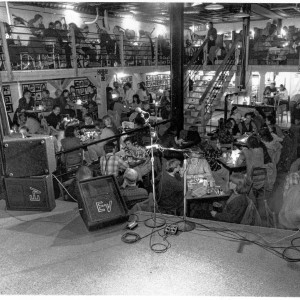 The Iron Horse rides again: The storied Northampton club will reopen at last, May 15
The Iron Horse rides again: The storied Northampton club will reopen at last, May 15
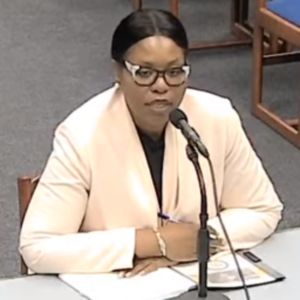 Final pick for Amherst regional superintendent, from Virgin Islands, aims to ‘lead with love’
Final pick for Amherst regional superintendent, from Virgin Islands, aims to ‘lead with love’
 Authorities ID victim in Greenfield slaying
Authorities ID victim in Greenfield slaying
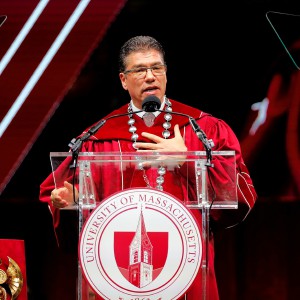 Reyes takes helm of UMass flagship amid pro-Palestinian protests
Reyes takes helm of UMass flagship amid pro-Palestinian protests
 Police report details grisly crime scene in Greenfield
Police report details grisly crime scene in Greenfield
I suspect Mr. Vernon-Jones will continue to offer more of the same in his periodic columns, but he is just preaching to the choir. The world’s energy production and distribution is critically important, complicated and, as much as he would like us to open our hearts, cannot be materially changed in a relatively short period of time.
Daniel Lyons lives in Florence.

 Guest columnist Marietta Pritchard: Landlines and more in our parallel universe
Guest columnist Marietta Pritchard: Landlines and more in our parallel universe Guest columnist Dr. Meghan Gump: Dear Patients — We hear you!
Guest columnist Dr. Meghan Gump: Dear Patients — We hear you! Guest columnist Lawrence Pareles: Make completing FAFSA form a high school graduation requirement
Guest columnist Lawrence Pareles: Make completing FAFSA form a high school graduation requirement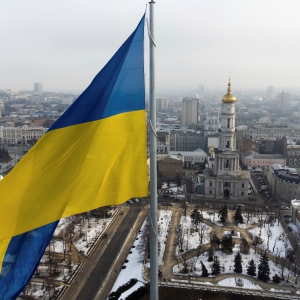 Daniel Barker: Time for peace in Ukraine
Daniel Barker: Time for peace in Ukraine
